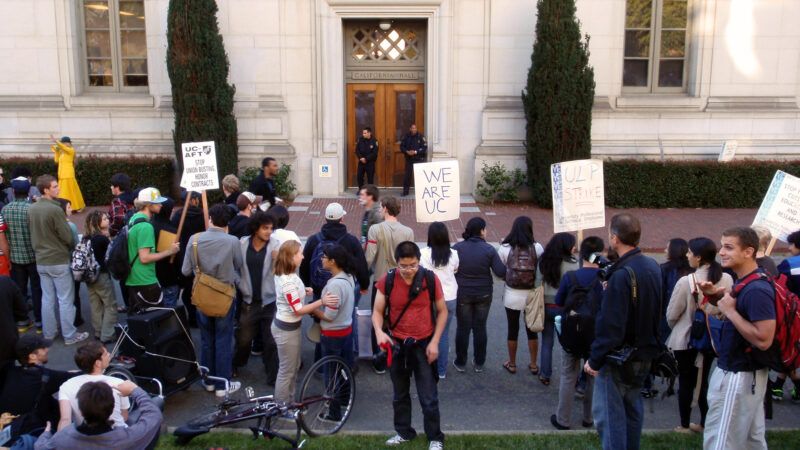Activists Tried To Cancel a Record Number of Campus Events in 2024
164 events or speakers were targeted, mostly over the Israel-Palestine conflict.

This past year, a record 164 speakers and events were targeted by campaigns to be disrupted or canceled, according to the Foundation for Individual Rights and Expression (FIRE), a First Amendment group. This is slightly higher than 2023's 154 deplatforming attempts. More than half of 2024's attempted cancelations were related to the Israel-Palestine conflict, up from about a third of 2023's platforming attempts.
In all, 2023 and 2024 saw a significant increase in attempted deplatformings of campus speeches and events from the years prior (though it's worth noting that FIRE records attempted cancellations of events with multiple speakers as separate attempts). Meanwhile, 2022 and 2021 had just 81 and 56 attempts, respectively. Around half of 2024's attempts resulted in the event being canceled, the speaker's invitation being revoked, or the event being substantially disrupted.
In January, Indiana University canceled an exhibition from a Palestinian-American artist over her pro-Palestentian social media posts. In April, Rep. Jamie Raskin (D–Md.) was shouted down during a physics department lecture at the University of Maryland. In the spring, speakers ranging from United Nations Ambassador Linda Thomas-Greenfield to CNN's Michael Smerconish had their invitations to deliver commencement speeches revoked following student or community outrage. In November, a symposium on the Israel-Palestine conflict including Judith Butler was forced off the campus of the University of Florida after administrators objected to the event.
Even though attempted cancelations were particularly frequent this year, they're far from new. There have been more than 1500 deplatforming attempts at American colleges and universities, according to FIRE's database. Sean Stevens, a social psychologist at FIRE, has even inducted nine colleges "with 20 or more deplatforming attempts and speakers and performances targeted by 10 or more deplatforming attempts since 1998" in a deplatforming "Hall of Fame." The top offenders were Georgetown University, Harvard University, and The University of California, Berkeley.
As more colleges move toward institutional neutrality in the face of political controversy on campus, it's difficult to dislodge student activists' penchant for lobbying the university to cancel events they don't like. The only way to stop campus deplatforming attempts is for university administrators to refuse to cave to outrage.


Show Comments (106)